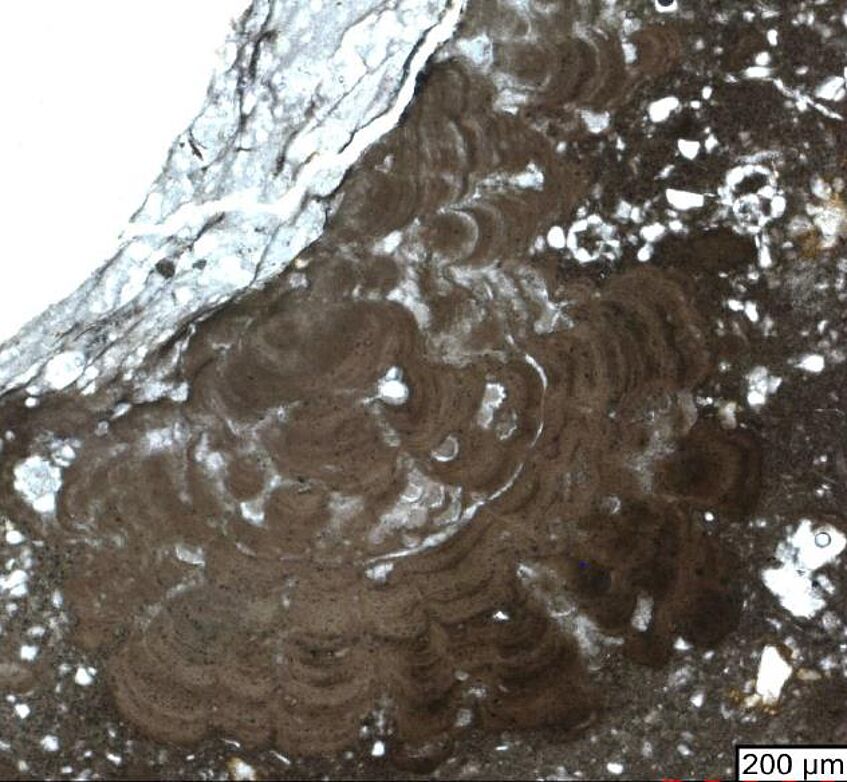Phosphatic stromatolites within black shales from the Devonian – Carboniferous transition, Rheinisches Schiefergebirge, Germany
Research team:
Jennifer Zwicker
Daniel Smrzka
Michael Joachimski
Matthias Gothieu
Jörn Peckmann

Thin section micrograph of phosphatic stromatolites from the Devonian – Carboniferous transition, Germany (© M. Gothieu).
Phosphatic stromatolites are unusual microbial fossils in the rock record.
These fossil microbiota are known from the Proterozoic to the Phanerozoic, and occur in multitudes of morphologies such as oncoid, cone-like stromatolites, domal stromatolites, and microstromatolites.
A yet unknown occurrence of these unique fossils is currently under investigation from black shales deposited during the Devonian – Carboniferous transition in Central Germany.
These microbial fossils possibly mediated one of several types of metabolisms that coupled the geomicrobiological cycles of sulfur, iron, and phosphorus.
It is the goal of this project to establish the mechanisms of phosphorite formation, as well as to elucidate possible microbial metabolisms that were active.
